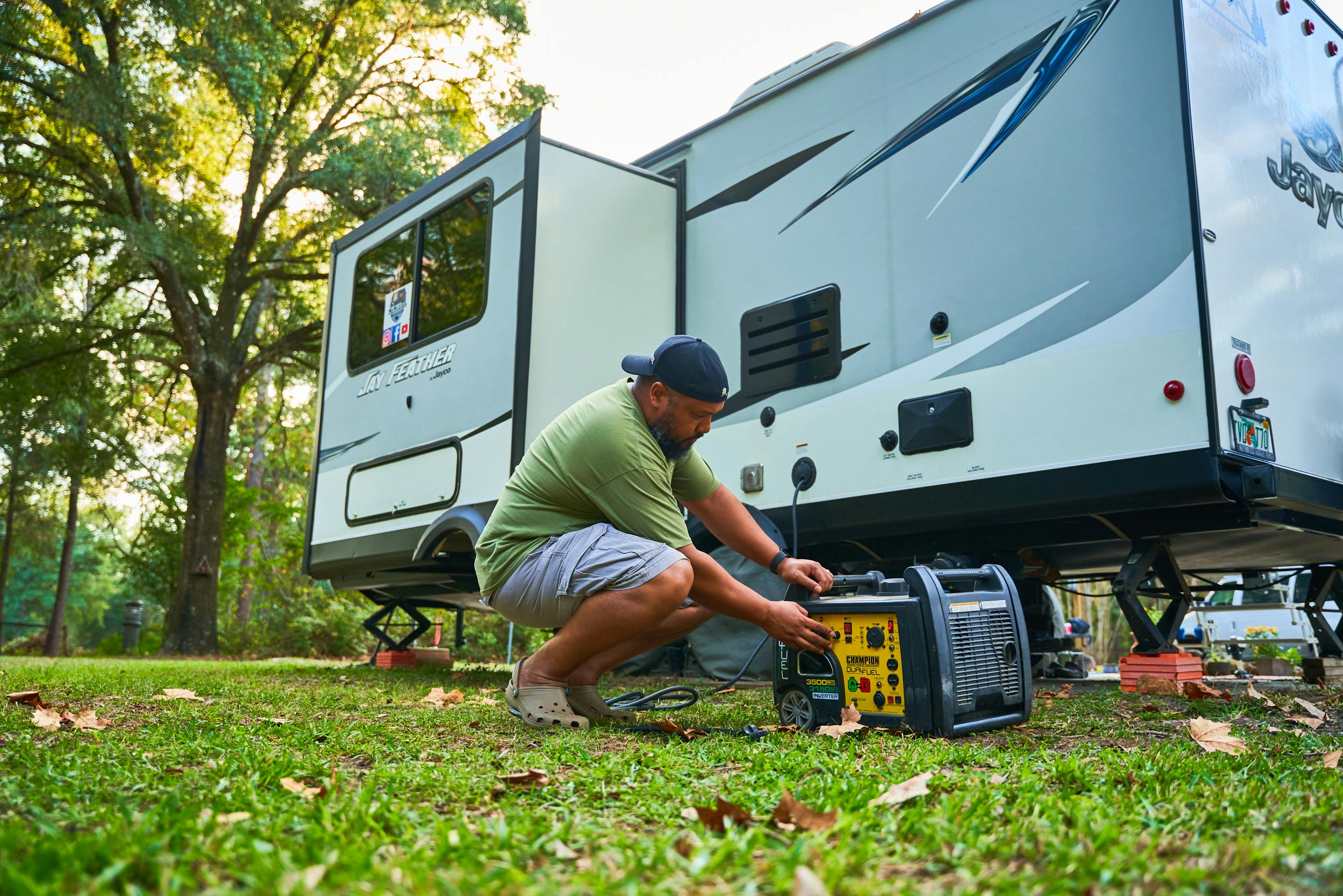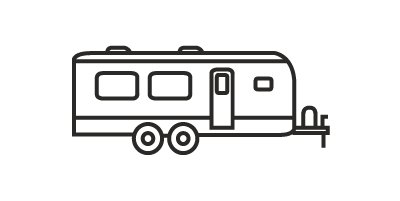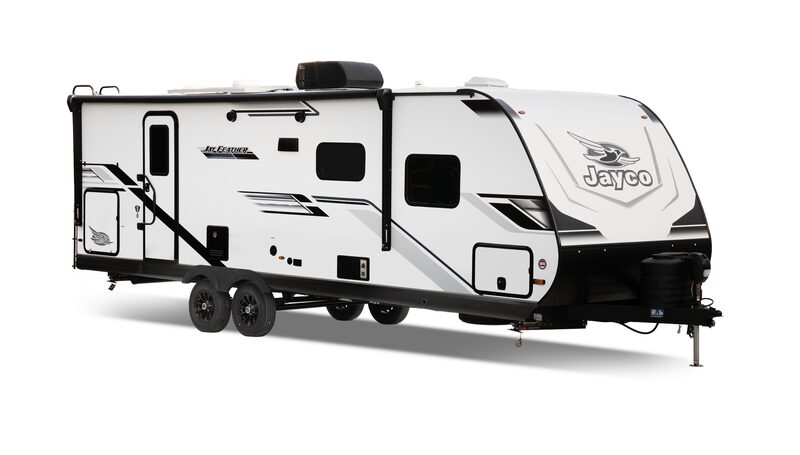Create A Checklist For Hitching & Unhitching
On one of our first RV trips—confident that we were familiar with the entire set-up process—things seemed to be going a little too easy. We were fully set-up, the travel trailer was level, electricity was flowing, sewer line was connected, awning was out, and stabilizers were down. However, we forgot one major step: we didn’t disconnect our truck from the RV. It was only when we went to get into the truck to take it for a drive that we realized it was still hitched. If we hadn't noticed, we could’ve done some serious damage to both our hitch and our RV. In order to properly disconnect the hitch, we had to go through all of the tear-down steps, including disconnecting, securing inside items, pulling in our awning and slide out, and raising the stabilizers. We then re-leveled the RV and started the set-up process all over again. I'm sure our neighbors got a good laugh watching that.

Always Check Your Tanks, Especially Your Freshwater
We love camping at state parks but many do not offer full hookups. Dry camping has never been a problem until we forgot to fill the freshwater tank before setting up camp. Our tank was bone dry and we were scheduled to stay for four nights. Luckily, our campsite was directly next to a bathhouse and dishwashing station. So, for the remainder of our stay, we had to use those facilities for any washing, cleaning, bathing, or bathroom needs. After that trip, we bought a six gallon freshwater container (those plastic blue jugs you see many RVers travel with). We always keep that container full in case we forget about the freshwater tank again or run out of clean water. We’ve also made the mistake of overfilling our greywater tank and then had to deal with dirty water backing up in our sink and shower. At hookup campsites, you can often be so focused on the freshwater and black water tanks that you might forget to open the hatch to let your greywater drain as well.
Pro tip: Running out of freshwater can not only cut your trip short but it can also cause air bubbles to form in your water pump. It’s a tedious task to get air bubbles out of your hose and pump and, if left unchecked, these bubbles can cause damage to your water system.

Secure Everything Inside Of Your RV
Most RVers are aware that items inside of the RV need to be secured before you hit the road, but some people only focus on the bigger, bulkier items. While things like chairs, TVs, doors, and windows all need to be secure. Don’t forget the little things, too. One time, I failed to secure my small jewelry box on moving day and it went everywhere. Luckily, the box didn’t dent or damage anything but it was pure agony trying to find small pieces of jewelry inside every nook and cranny.
Check Your Driving Routes Ahead of Time
One of the worst mistakes we made was going over a one-way, metal-grated bridge with low clearance. At the time, we weren’t familiar with RV-friendly travel apps that can help notify you of any bridges, tunnels or low clearance roads. There was a warning sign but it was two miles back from the bridge and we missed it. As we crossed the bridge, our ladder and antenna were ripped off, the air conditioner was smashed, our solar panel shattered, and our driving confidence was destroyed. We stopped at a nearby campground to survey the damage and were shocked to see how much of our equipment was ruined. Luckily, our insurance agency walked us through everything and we were able to get the items fixed and replaced.
Pro tip: Consider investing in a GPS device or system that is specifically designed for RVers or truck drivers and can be used offline or in areas without any service.

Be Aware Of Inclement Weather
Regularly checking the weather is always a good idea, but it's especially important if you plan to take an extended RV trip or travel during the shoulder seasons when weather is more unpredictable. While camping in the Puget Sound area one night, we forgot to bring our awning in. A big storm hit and we awoke to a loud banging noise slamming against the side of the RV. We stepped outside and realized our awning had broken in the wind. Luckily, it hadn’t ripped completely off and we were able to manually guide it back into place. We had also left our generator outside and uncovered in the rain, which cost us about $1,200 to repair.
Never Rush The Process
When you’re pulling into a campsite or trying to park, sometimes it can feel like the whole campground is watching you and waiting for you to move. One time we were trying to back into a tricky campsite and didn’t want to hold anyone up, so we rushed through it. We backed into the site at too much of an angle with the stabilizer bars attached and damaged our weight distribution hitch. We’ve also left our stabilizer bars up against the front of the RV while leveling and caused damage to our rock guard. All this to say, always take it slow and never worry about holding someone up.
Be Mindful Of Your Battery Levels
One time during the summer, we were staying in a parking lot without hookups and decided to keep the high-powered fans running all night to keep the RV cool. When we woke up in the morning, the batteries were completely drained and we couldn’t use our electric jack (which runs off the house battery). Not to mention, our coffee pot is also electric and we are not functional in the mornings without it! We've also drained our batteries while boondocking because we forgot to switch the fridge from electric to propane.

Always, Always, Always Chock Your Wheels
We cannot stress this enough—keeping your RV tires chocked, especially when hitching, is imperative. As soon as the tongue jack is raised or lowered, the RV is off-level and can easily roll. One time, we were in such a hurry to hitch up that we took the wheel chocks out before our travel trailer was connected to the truck. Our RV rolled backwards and nearly hit another truck camper. Luckily, it stopped about 10 feet short and we learned to never make that mistake again.











